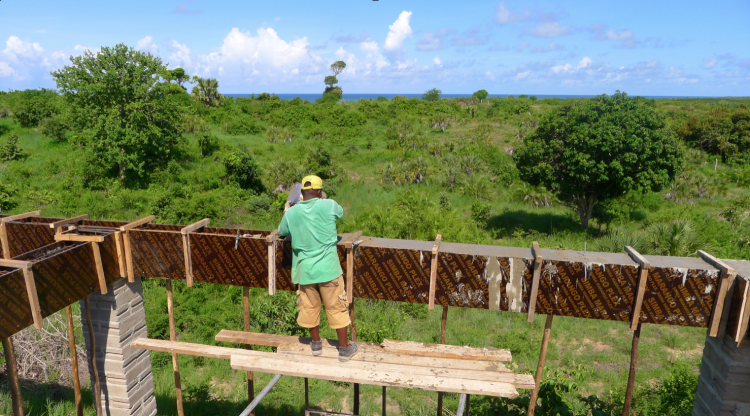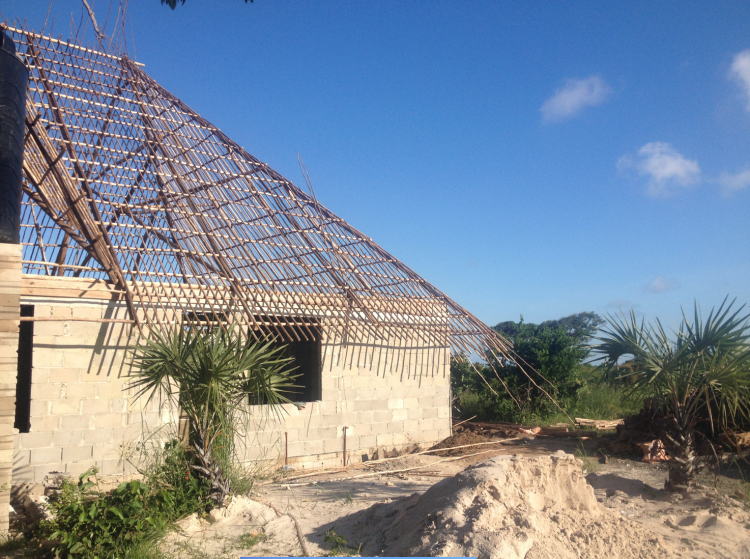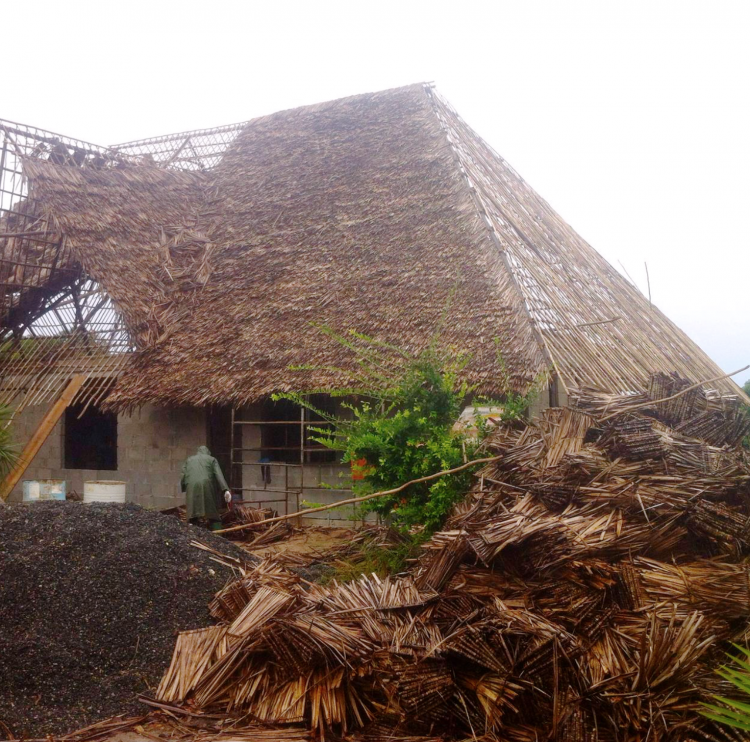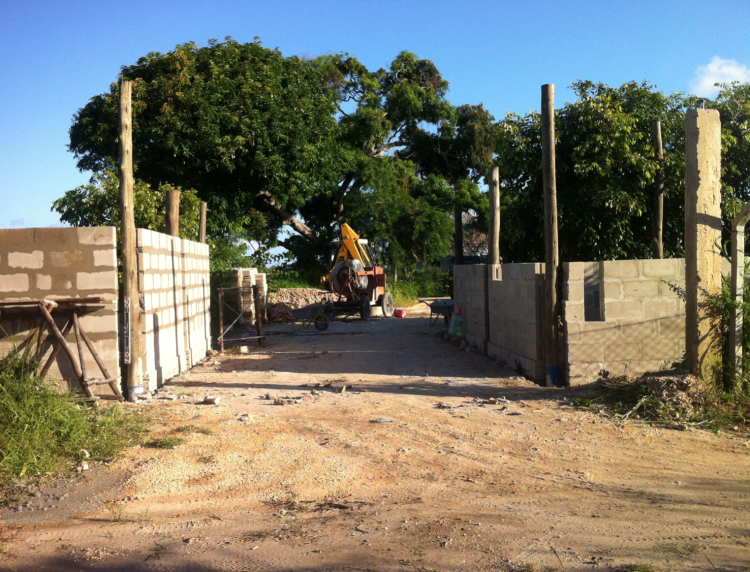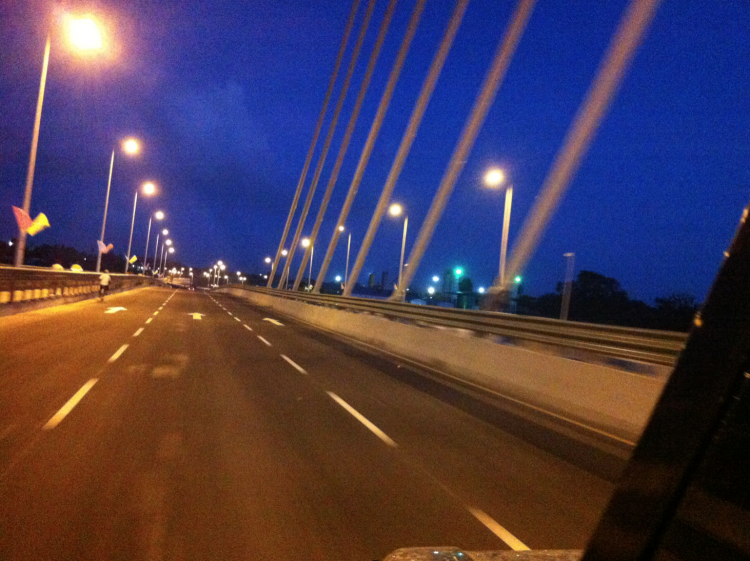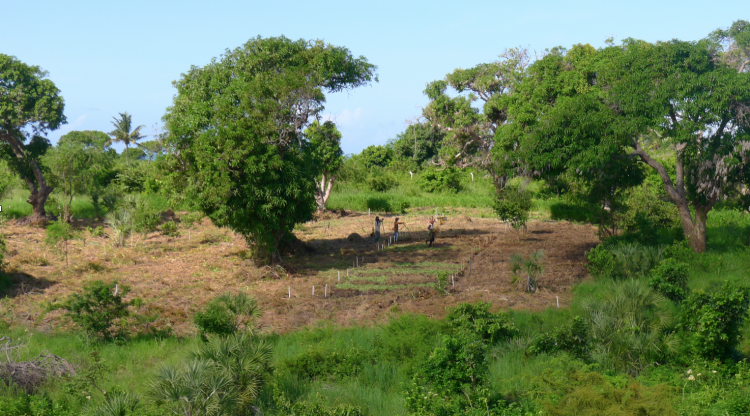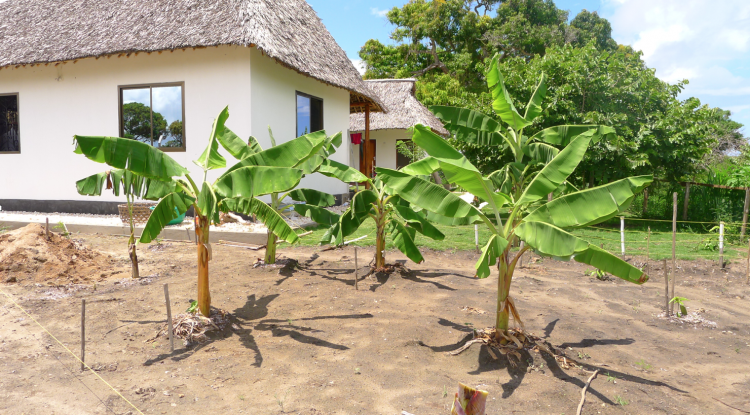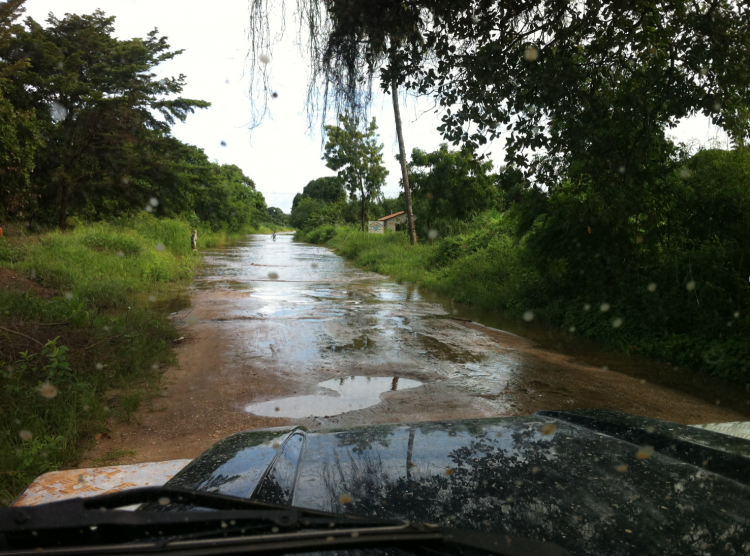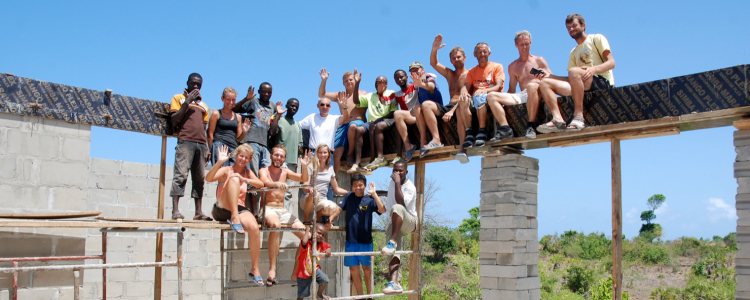
Ihr Friends,
Almost 5 months have passed since we officially reported from "Dunia ya Heri" last time. On the one hand we do not want to bother our supporters too much with information, on the other hand many of you will wonder what has happened in the meantime. Our goal is still to pick up the first orphans in late summer of this year. With your help, we have come a great deal closer to this goal. Before our Polish construction team, which built the framing of the children's nursery, left us again in December, a farewell photo was quickly taken on the ring anchor of the nursery. "The view from up there is simply fantastic. It would be too bad to miss it. Would it not make sense to create additional living space under the roof? " With these inspiring thoughts, we went to the well-deserved Christmas break. But the idea did not let us go. The arguments could not be dismissed. And so we finally decided to build a roof, under which you can create more living space.
The statics of this hipped roof still required some important changes to the framing. As a support for the roof the ring anchor had to be extended so that the ceiling construction can carry the extra weight. In addition, steel beams had to be recovered later. This work was completed in March with the help of the architect and structural engineer. For cost reasons, most of the work was done by our own builders, although it took a little more time. In March and April the ceiling construction and the construction of the roof could be started. We have decided (again for cost reasons) for a typical palm roof of the coastal region. In the short term, it is the cheapest roof construction, but the palm leaves must be renewed every 7 to 8 years. The risk of fire is similar to thatched roofs. Such a roof has an excellent insulation value against the heat and caused no such noise as the typical African corrugated iron roofs in the rain, which are then so loud that one can no longer understand his own word.
The electrical and plumbing installations were completed in April. The current water tower is still just a temporary tower of loose cement bricks with a 5,000-liter tank, but this system has been well proven in the existing guardhouse. As soon as the funds are available, construction of the large water tower for the entire site begins. Also, a septic tank with sewage treatment plant was built for a total of 3 buildings. The wastewater from this system can be used to irrigate the garden. Meanwhile, the shell for the driveway was started. The property must have a controlled access for the children in terms of safety. A guard will later control the entrance and exit.
There are two really good news: Public electricity has arrived in the village of "Puna". It is not yet on the property because four power poles must be placed between the main road and the property, but the electricity is already in the village. The resulting celebrations cost us two sleepless nights, although the village is about 800 m to 1.2 km away. At 4:30 in the morning you can also hear the calls of the muezzin from the small mosque, which are announced via loudspeakers to all villagers. Sometimes one wonders if it would not have been easier without electricity...
The second piece of good news: On April 16, the six-lane bridge linking Dar es Salaam to our coastal strip was inaugurated. Waiting times at the ferry, sometimes more than two and a half hours, are now a thing of the past. Our record was now one and a half hours from the property to the city center. We hope that this will go even faster soon, when the road to our place is expanded. The plans are already in the drawers. We are curious how long it will actually take. In the end you will need less than an hour for the 50 km into the city.
The positive events so far have led to a doubling of land prices. Although it offers us no financial benefits, the purchase of a property in this region would be hardly conceivable for an orphanage at present. God has led us to the right place at the right time. Now the interior of the nursery is tackled - interior plaster, screed, tiles, windows and doors. We hope to complete this by the end of June.
A few days ago, 5 chickens were acquired. And the gardener by the name of Yese, who came to visit us from Kibidula - a mission and agricultural school (where Yese teaches at times) - has begun to create a generous vegetable garden for the children. The earth must be enriched with nutrients that have been washed out again and again by the immense rainfall during the rainy season. We have therefore set up a composting plant, which delivers high-quality compost in a short time of only 2 to 4 weeks, and sustainably improves soil quality.
In the meantime, a total of 170 coconut palms and about 100 other fruit trees (including mangoes, limes, lemons, guavas, passion fruit trees, baobab trees, jackfruits, bananas and chirimoyas, etc ...) have been planted. The earlier these trees are set, the sooner their yield can be expected.
Oh yes, the rainy season. This is a chapter in itself. It is our first rainy season on the Tanzanian coast. Partly we were completely cut off from the outside world, which was not a good feeling. After 2 days of continuous rain, the road to Dar es Salaam partly turned into a deep lake (about 40 to 50 cm deep). Now we know why we were absolutely advised to use a Land Rover with a suction cup (suitable for driving through deeper water). None of us knew how soon and how urgently we needed this type of vehicle here, even though we live only 50 km from the city. The beloved "Landy" has not left us in the lurch and even where other vehicles could not get any further without help, we were able to continue after a few maneuvers that seemed hopeless at first.
At the end of this short report, we want to honor our God. Although we could never be sure, He has always given us sufficient financial resources when we needed them most urgently. And our thanks also goes to all of you who have helped us with prayer and in practical terms through financial support. For those who would like to visit Dunia ya Heri to help us with their gifts and skills in building one of the buildings, there are two dates:
- For November / December 2016 (3.11 to 11.12.) a construction crew is planned to start the shell construction of the second home building.
- For the coming year a four-week trip (probably in June 2017) is planned, which is probably organized by the »Seminar Schloss Bogenhofen«
The cost for a 4-week trip is likely to be between 1,000 and 1,300 euros (including flight, food and lodging, as well as a few days of wildlife or beach vacation). From "housewives" without experience to the most experienced craftsmen - everyone is invited to help with the construction of the buildings. Tanzania is certainly one of Africa's most extraordinary countries in terms of wildlife diversity.

